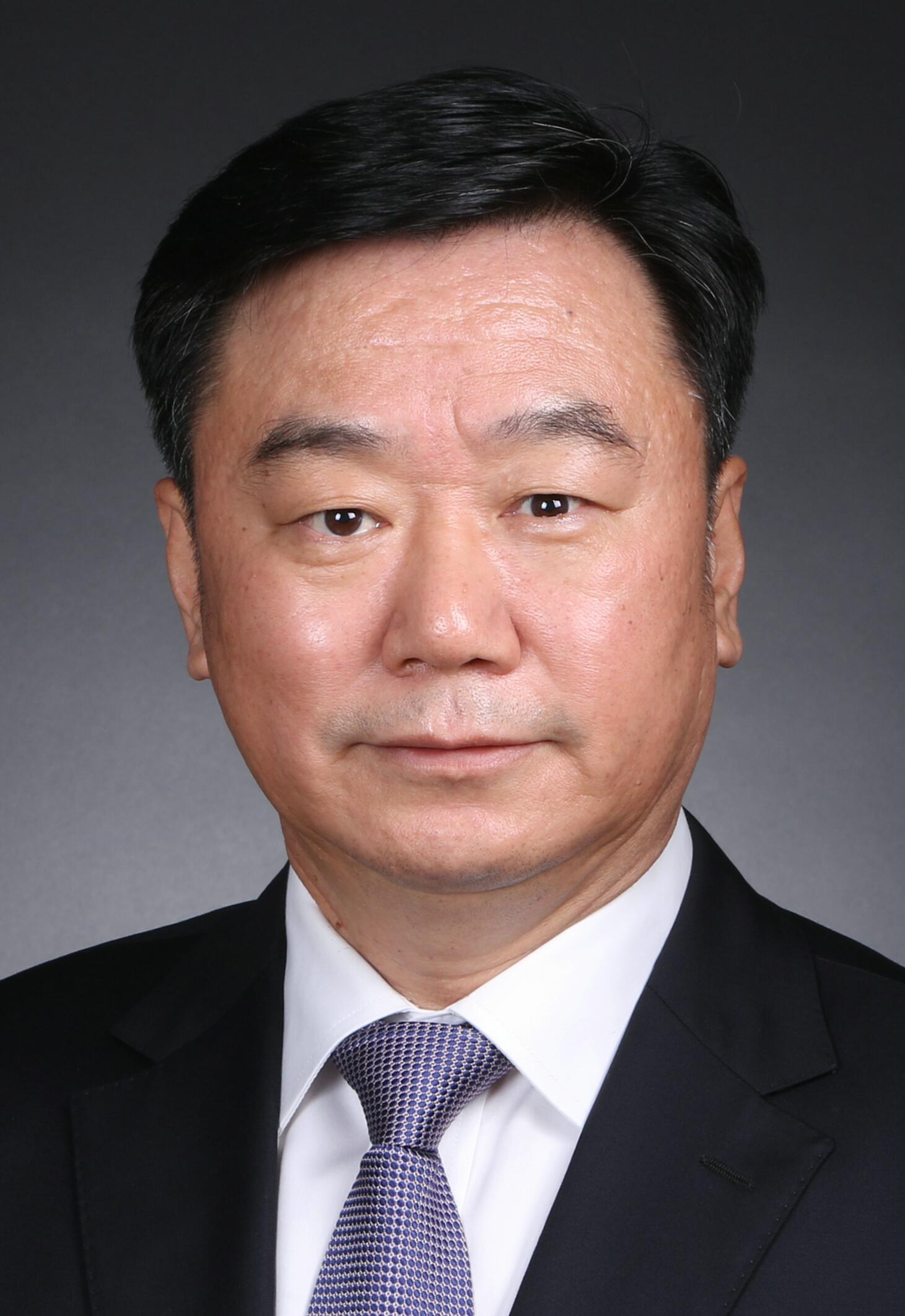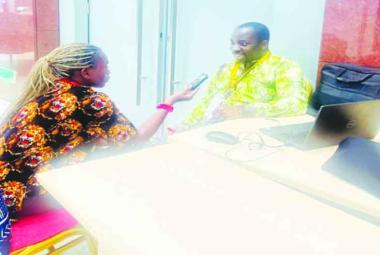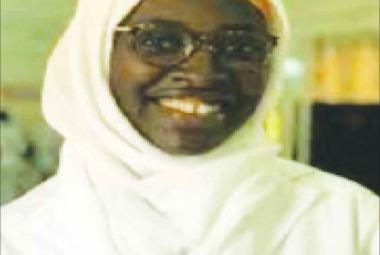This is an era full of opportunities; it is also one filled with uncertainties. Today, the interactions among people are featured with much deeper and wider globality than ever in history, and countries are much more interconnected with one another than any time before. Globalization is the background tone of today’s world; it is also a trend irreversible. When changes create new possibilities, what come along are risks and challenges too, including those non-traditional security issues yet to be thoroughly considered, such as the COVID-19 pandemic that is sweeping over the globe today. We are standing at a crossroad of history, facing a choice that is to shape the future of humanity.
Chinese President Xi Jinping pointed out, “no country is able to handle all challenges facing the world today alone, and no country could retreat to the island of self-isolation”. He proposed a vision of building a community with a shared future for mankind. This vision, at this particular time, is embodied in a more urgent, specific, and common appeal: to build a public health community for mankind.
At the beginning of this year, the outbreak of a novel coronavirus pneumonia known as COVID-19 overwhelmed China. To combat it, Chinese government mobilized medical and human resources across the whole country, and took the most comprehensive and rigorous prevention and control measures. Wuhan, the city most seriously affected by the outbreak, suspended its internal and external public transport, and all Wuhan citizens were put under quarantine at home. Within just two weeks’ time, two emergency hospitals were built at the suburb of the city and immediately started functioning, and stadiums and many other large public buildings were transformed into makeshift hospitals, to make sure all patients can receive proper treatment. Fighting in this battle were countless Chinese people, including doctors and nurses working at the front line of saving lives, community workers shuttling between their neighbors, scientists working around the clock to create medicines and vaccines... The list goes on and on. For their own and others’ health, ordinary Chinese people canceled their much-anticipated traditional lunar new year celebrations, voluntarily stayed home, and strictly practiced social distancing, calmly waited for the end of the disaster.
To prevent the outbreak from spreading, China has been timely and closely working with the international community, adhering to transparency and openness. When China was in hardship, countries including The Gambia, and international organizations sent us many messages of solidarity and support, helping hands were extended to us, and urgently needed medical supplies were delivered from all over the world. Those touching moments made us stronger and more confident. I heard that a Gambian student named Ebrima Barry, who studies in Wuhan city, actively played his role as a volunteer during Wuhan’s hard time. Ebrima together with his Chinese and foreign peers acted as bridges linking school staff, teachers, and the students, facilitating the daily lives of his fellows, and contributing to Wuhan’s overall efforts in overcoming COVID-19. Volunteers in ordinary times are respected, and volunteers in such challenging times are true noble heroes!
March 18th marked a new milestone of China’s war against the outbreak. It was on this day that Wuhan’s confirmed case tally first declined to zero. At midnight March 25th, the suspension of outward transportation from Hubei Province, where Wuhan city is located as provincial capital, has been lifted, and Wuhan’s revitalization is now well in sight. China is gradually getting back to work. It was the contribution from the people that made this day arrive sooner, and it was the arrival of this day that made us believe more firmly that, as long as proper measures were taken with concerted efforts, the virus can be defeated!
Today, there are still many patients yet to be discharged from hospitals in China, and imported infections have been reported in various Chinese cities each day. Risks still exist, and we are continuing striving towards the eventual victory. Meanwhile in many other places such as Europe, North America, and Middle East, the outbreak situations are worrying. Confirmed cases of COVID-19 have also been reported in most African countries. This calls for all people around the world to work together to fight the virus.
It is a common belief among the Chinese people that one shall always return even the slightest favor he receives when in trouble, thus China is now extending helping hands to countries around the globe that are struggling against the pandemic, including African countries. Chinese government are offering testing kits to Africa and will provide more; Chinese health experts held an in-depth video conference for their African counterparts as well as officials of African countries and African Center for Disease Control and Prevention, sharing experience of containing the virus; Chinese medical teams in Africa are actively cooperating with their local colleagues and partners, engaging themselves in Africa’s combat against the pandemic.
Recently, confirmed cases have been reported in The Gambia. The Gambian government, political parties, enterprises, civil organizations, and ordinary people are now all fighting against COVID-19. China has earlier this month provided the Gambian government with health-purposed vehicles, medical equipment and medicines, in hope to help strengthen The Gambia’s public health capacities. The Chinese government will offer The Gambia another batch of medical supplies, including testing kits, face masks, protective clothing, forehead thermometers, safety goggles, disposable gloves, and so on. In addition, China’s Jack Ma Foundation and Alibaba Foundation have donated massive amount of medical supplies to all 54 African countries, in which 100,000 face masks, 20,000 testing kits, 1,000 sets of protective clothing and many other equipment are for The Gambia alone. The Chinese Embassy is actively coordinating with multiple sides on the delivery of all these goods, endeavoring to get them arrived as soon as possible.
What happened in the past few months have once again proved an undisputed fact: countries of today’s world share weal and woe as they are much more bonded to each other than ever before. We must note that the coronavirus respects no national borders, nor does it know racial or ideological differences. The COVID-19 is a common enemy of humanity. At this moment, our strengths exist in our solidarity, just as WHO Director General Dr. Tedros appealed that, the “amazing spirit of human solidarity must become more infectious than the virus itself”.
Throughout the global pandemic, we have witnessed abundant touching moments. We saw people applauding health workers from their balconies, volunteers offering to do grocery shopping for the elderly in their communities, artists playing cheerful music for their home-quarantined neighbors, and doctors and nurses departing for countries afar to bring hope to those struggling with infections. Unfortunately, however, some discordant noises against such solidarity were recently brought on the international stage. Some politicians keep utilizing the pandemic to stigmatize China and the Chinese people. They deliberately confuse right and wrong, facts and lies, seeking to flee from the unfulfilled responsibilities of protecting their own people, and shifting away the public concern over their domestic outbreak situation and containment performance. They smeared China’s combat efforts, and wasted the two-month-long precious time of getting prepared that was arduously won at Chinese people’s sacrifice. To serve their own interests, they even attempted to forcefully bind together China and the coronavirus, while the fact is that scientists have yet determined where this virus truly come from! The WHO and international community are opposing stigmatization or associating the virus with a certain country or region. Tagging a nation or race with “virus” is unhelpful and rather harmful for the global fight against the pandemic. What should be done instead are following scientists’ advice and adopt protective measures, promoting mutual understanding and assistance over this challenging time, believing in science, staying reasonable, working together and building a public health community for the whole mankind.
The pandemic makes countries around the world to once again come together, and global solidarity once again becomes a common call. On March 26th, the G20 extraordinary virtual leaders’ summit on COVID-19 was held, in which Chinese President Xi Jinping appealed that the world must move swiftly to stem the spread of the virus, and be resolute in fighting an all-out global war against the COVID-19 outbreak.
We shall note that as long as we all work together and help each other, the challenge will be overcome. Humanity has gone through one after another winters of despair, while time and again springs of hope befall it. This time will not be an exception.






